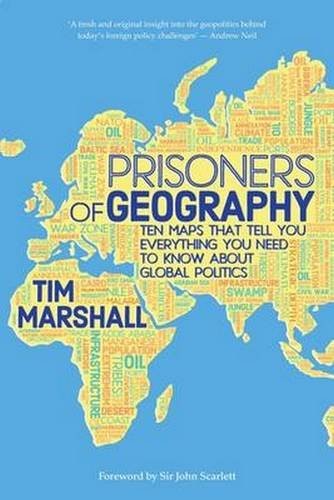lakelady reviewed Prisoners of Geography by Tim Marshall
Review of 'Prisoners of Geography' on 'Goodreads'
3 stars
I love the topic of geography and maybe that's why I found this book on the thin side. I didn't learn much that I didn't already know. Overall it's a decent book that reads like a series of magazine articles. If you're not familiar with geopolitics this is a great introduction. And as long as you don't expect more than introductory level thinking about this topic then you'll probably like it. I was hoping for more.
I love the topic of geography and maybe that's why I found this book on the thin side. I didn't learn much that I didn't already know. Overall it's a decent book that reads like a series of magazine articles. If you're not familiar with geopolitics this is a great introduction. And as long as you don't expect more than introductory level thinking about this topic then you'll probably like it. I was hoping for more.



